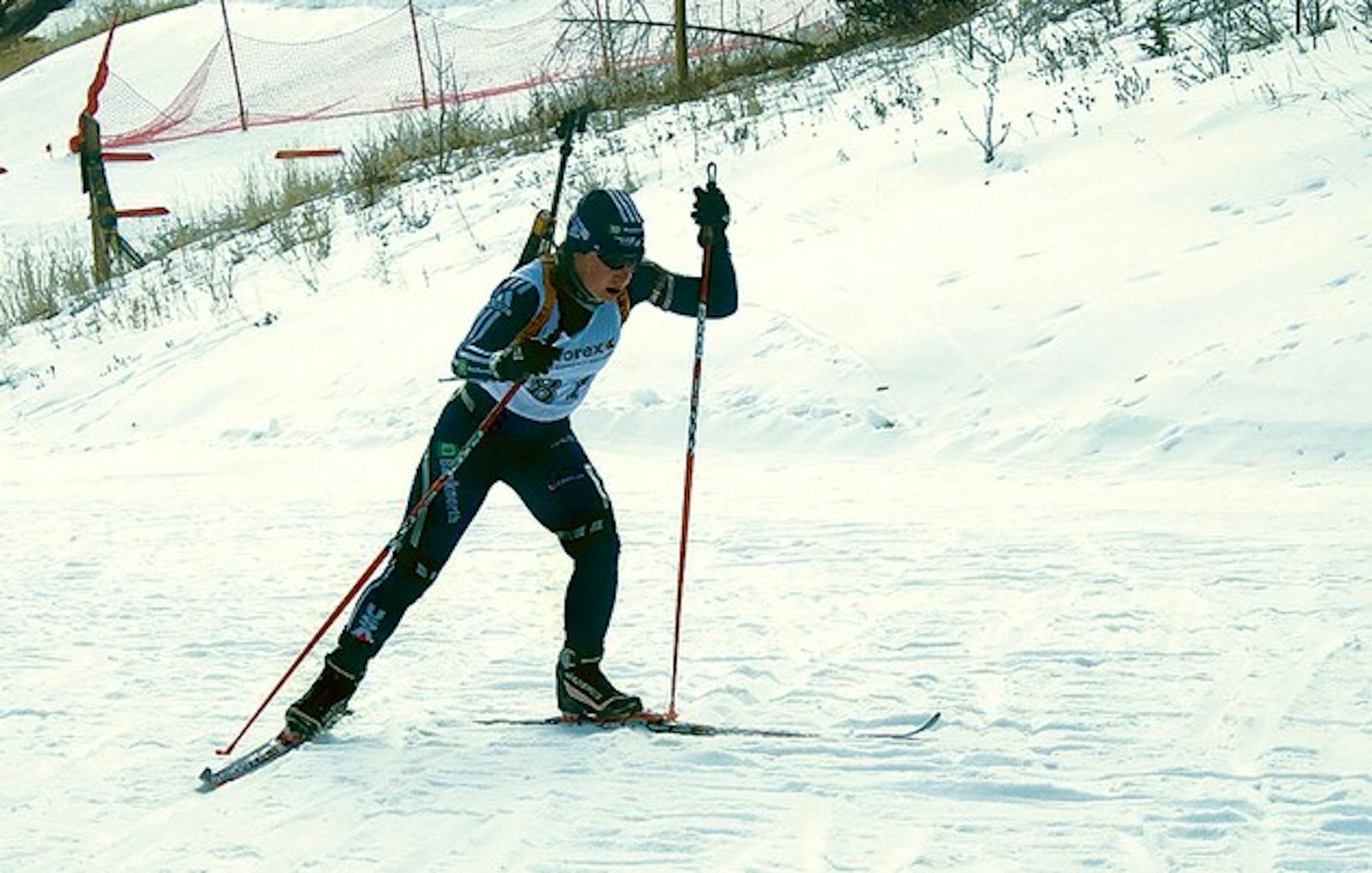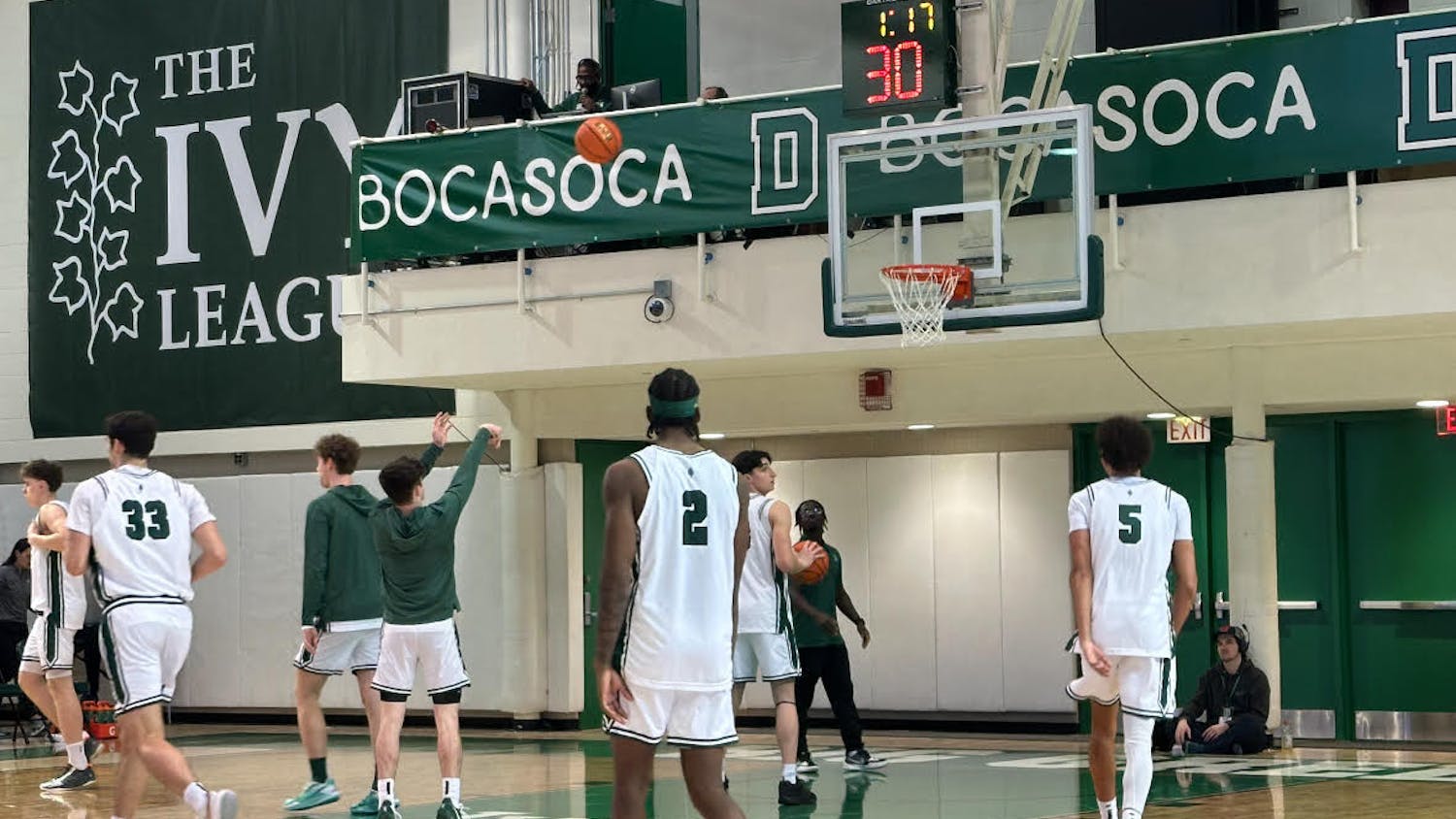"After having had two good races in Altenberg, it was what I was expecting, but with the last spot being coaches' discretion, there were a few butterflies," Spector said in an interview with The Dartmouth.
Despite foggy conditions at the trials, Spector cleared both sets of targets and avoided penalty loops that would have increased her time. She finished in second place with a time of 23:18.
At the Union Cup, strong winds made accurate shooting difficult. Still, Spector walked away with only three penalties, finishing in the top quarter of her competitors.
"The hardest thing [about competing in the biathlon] is dealing with varying weather conditions," Spector said. "Shooting is very much affected by the wind while skiing is affected by the amount and type of snow. Conditions can vary from day to day, and you have to be versatile."
Despite often being considered one of the most difficult events at the winter games, the biathlon is a relatively unknown sport. As its name suggests, a biathlon consists of two different sports skiing and shooting combined into one competition.
Competitors carry rifles and ammunition on their backs while racing on cross-country skis around a track, and race into the shooting portion of the event at full speed. The biathletes must calm their heart rates enough to steady their shot, and hit five four-inch wide targets from a distance of 160 feet. The athletes do this at two different points during the race, once in a prone position and once standing.
A penalty is allotted for each target that a competitor misses, and is in the form of either added time or extra penalty laps, depending on the style of the race.
Years of dedication and hard work are required before a competitor can become a talented biathlete, which Spector's career clearly demonstrates.
"I got my start as a cross-country skier in junior high school and when became interested in biathlon after attending a week-long summer training camp in Lake Placid at the 1980 Olympic venue," Spector said.
Spector continued training even after coming to Dartmouth in 2006, where she utilized the flexibility of the D-plan to give her the necessary time to improve her skills.
"I took the Fall and Winter terms off these past two years so that I was able to attend all our pre-season training camps and start the race season early," she said. "I will be in school every Spring and Summer to make up for it."
At the moment, however, school is one of the last things on Spector's mind.
She still has to compete in two World Cup events before the Olympics begin, one in Ruhpolding, Germany, and one in Antholz, Italy.
Spector will spend some time at home before heading to training camp in Vancouver.
Although confident from the results of her previous races, Spector said she is not going to let the thrill of this experience get the better of her in the upcoming weeks.
"I was happy with my clean first race and my finish in the second race, but it's nothing I get too excited about because I need to stay focused for the next race," Spector said.
The Olympics begin on Feb. 12 in Vancouver's Place Stadium with the opening ceremonies, when Spector and Team USA will process in together.
During the Games, Spector will compete at the Whistler Olympic Park in Callaghan Valley, about two hours north of Vancouver, as early as Feb. 13.




